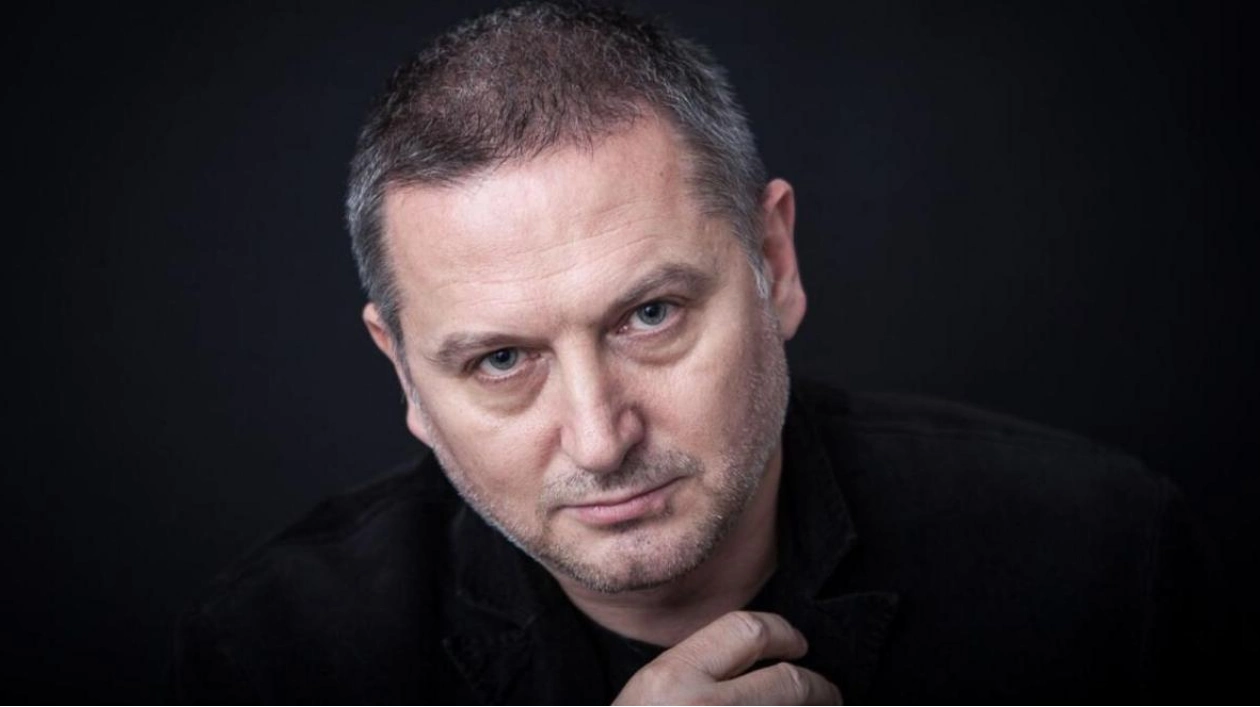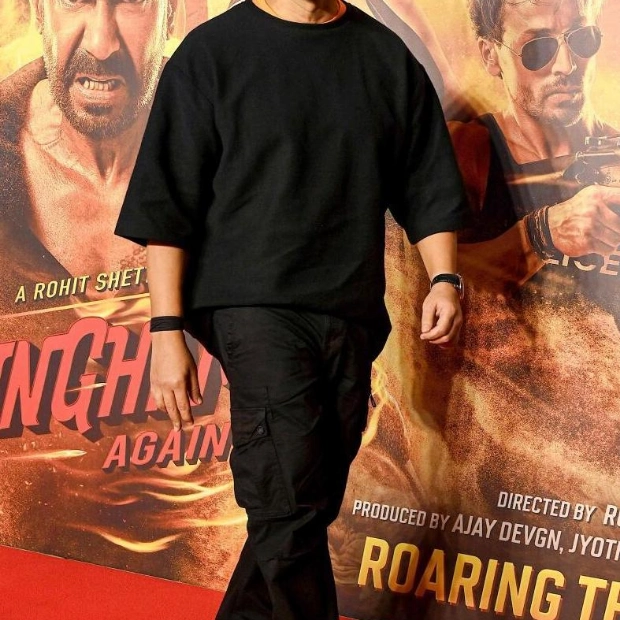For someone who addresses the notion that Bulgaria might be the saddest place on earth, Georgi Gospodinov is surprisingly upbeat. Like many confident thinkers and writers, Gospodinov is content to gently poke fun at what he terms the ‘Bulgarian sorrow’ (“we are the champions of sorry,” he quips) and has the skill to analyze social and political contexts to reveal how they shape people’s lives. Consider this: his 2011 novel The Physics of Sorrow explores the concept of weaponizing the past, where one of the main characters develops a condition known as pathological empathy as he delves into other people’s memories.
His International Booker Prize-winning novel Time Shelter revolves around a psychiatrist who establishes a clinic of the past to treat dementia patients, with each floor representing a different decade. Soon, referendums are held across Europe to decide which decade each country should be transported to. Written post-Brexit referendum in 2016, the novel is a sharp critique of the risks of revisiting political history. The Bulgarian poet and writer, who recently attended the Sharjah International Book Fair, discussed the intricacies of modern societies and why politics often becomes personal. Edited excerpts from an interview:
Tell us about your formative years. What was growing up in Bulgaria in the 1970s like? All my books are linked to my childhood. I started writing because of the nightmares I had as a child. I lived with my grandparents then. I wanted to share these nightmares but was told not to talk about them because they might come true. I began writing them down. After I wrote them on paper, the nightmares stopped. This was the first miracle of writing I experienced. You are saved from your fears.
I used to listen to my grandparents’ stories. It was a crucial experience for me — the storytelling of old people in Bulgaria. It was my first lesson in writing. I lived in a small town. We were somewhat like abandoned children. Our parents were young and worked hard. We stayed alone in our rooms because there weren’t enough places in the kindergarten. I remember this as ‘loneliness in my childhood’, which was a good time for my thinking. I was always reading. Books were my solace. The 1970s were also a time of socialism in Bulgaria. The crisis wasn’t very acute then.
When did you turn to poetry? In the 1970s. I started writing poetry. My mother found my poems and showed them to the only poet in our town. He liked them and encouraged me to write. I wrote about growing cold, about dying — topics considered unusual for kids. But kids do think about death. I was always seen as a poet who writes novels. And I continue to write poetry even now.
When you write prose as a poet, what influences do you bring to it? Language is crucial in both. People usually think in prose, using language to narrate subjects. I write my novels like poetry. For me, every sentence is important. That’s why my books are not easy to translate. The rhythm of my prose is very close to the poetry I wrote before. I don’t see a big difference between genres.
In 2010, The Economist called Bulgaria the saddest place on earth. In response, you wrote The Physics of Sorrow, featuring a protagonist who can enter others’ memories and develops “pathological empathy”. Did the book stem from anger? No. I wrote it years ago to explain Bulgarian sorrow. The Physics of Sorrow is a bildungsroman, drawing from Greek mythology and the Minotaur story. I have two parallel stories — the history of a minotaur and the history of a boy spending the 1970s alone in a room waiting for his parents. These are parallel stories of abandoned kids. Only after finishing the novel did I read The Economist article. It was funny because we’ve never been champions of anything, and here we were called world champions of sorrow.
The book is a long answer to the question of Bulgarian sorrow. Bulgarian sorrow is unique; it’s linked to things that never happened. We dreamt of many things that didn’t. It’s also a silent sorrow. There’s a culture of silence in Bulgarian society. We couldn’t easily talk about our feelings. Maybe it’s due to patriarchy or our socialist past. Bulgarian sorrow is akin to longing for places you’ve never been to but feel nostalgic about. Sorrow is also a human condition. You won’t find a dictator experiencing sorrow. Only normal humans do.
There’s also a Bulgarian term for sorrow. Tuga — it’s a short word. It’s hard to translate because every language has its own concept of sorrow. We don’t just translate a word; we translate the concept. It’s important to find similar concepts in other languages.
And the character has pathological empathy in the novel. I invented this condition. I met a doctor to see if there was a medical reference for it. I believe it exists. This is an important feeling. What we see today is a deficit of empathy. I believe literature and storytelling can develop empathy. My character in The Physics of Sorrow suffers from excessive empathy because when you’re deeply empathetic, you feel others’ sorrow. You share their sorrow. That’s why empathy is a kind of suffering.
Time Shelter, your International Booker-winning novel, is about a psychiatrist who creates a clinic of the past to treat dementia patients. Each floor of this clinic allows a person to revisit a decade of their life where they were happiest. How did this idea develop? I’ve always been interested in memory. I found a newspaper article 15 years ago saying a doctor had found that Alzheimer’s patients feel better when they listen to music from their past. I wondered what if we built clinics of the past? In the latter part of the novel, things get darker. The 2016 European Union referendum made me think what if there was a glitch in time and one could travel to the past. Populism also grew stronger around the world then. The book is dystopic.
Time Shelter is a cautionary tale against romanticizing the past. What are the dangers of doing so? Because the past has a dark side too. We live in the present, and our kids live in tomorrow. If we have to move forward, we can’t keep living in the past. You can’t stay in the past for long. You can’t be ‘great again’. Personally, you can’t be young again. So when leaders say they’ll put you back in the past, they set a trap. Personal past is irreversible, but political past can be reversible. That’s why politically, looking back can be tricky.
You were giving a talk in Berlin when someone said Bulgarian, or Balkan, literature should focus on local themes rather than broader issues. How do these stereotypes about who can write what harm an author? Secondly, is your writing more political than personal? It’s a stereotype. When I won the Booker Prize, I said it was important to show we can tell big stories in small languages. Don’t expect us to exoticize our countries, our origins. When I read my book in Berlin, I told them even in Bulgaria, people fall in love, get divorced, and die naturally instead of being stabbed in the chest. We have the right to tell stories about big things. I write personal stories that sometimes involve politics, ideologies in everyday life. I show how personal lives are affected when you’re told not to travel abroad. If you’re trying to tell the history of the world, start with the history of the person living in it.
As a keen observer of life and politics, what do you think explains Europe’s obsession with its past? Probably because Europe has a rich past. The problem is when the past is used for propaganda. As a writer, I’m on the side of the past; I like to tell stories about it. But the past that’s important to me is the personal past, not something that happened five centuries ago. When someone tries to use the past as a weapon to enchant you, it’s dangerous.
What does winning the Booker change for the writer within? The hardest thing is finding a place to hide and write your next book (laughs). I’ve learned to say no to some invitations. The good thing is reaching readers you couldn’t before. My next book is very personal and will have a different kind of writing.
Source link: https://www.khaleejtimes.com






